How the women of Game of Thrones are breaking all gender stereotypes
_73878_730x419-m.jpg)
For a show that seemingly kills off a character in almost every episode, Game of Thrones has made it to season 7 with 13 fairly important women characters still alive, and central to the story.
This number is quite large, given that we could count just about 20 important men, even if we include Gilly's son and the Night King himself. While the numbers are a fairly significant representation on their own going by television standards, what makes the women on Game of Thrones truly outstanding is how each of them defy patriarchal notions of what a woman's role in society should be.
For a show that has faced a lot of flak for its excessive female nudity and wanton rape scenes, GoT has somehow managed to rise above all this and redeem itself by positively reaffirming the power its women wield. And when one says power, it's both in terms of the tangible, as in the case of Cersei and Daenerys, as well as the power that comes with self-realisation, as in the case of Gilly or Arya.
Here, we attempt to break down the ways in which each of these thirteen fascinating women defy gender roles, thereby forging their identities on the show as individuals, and not props.
CAUTION: SPOILERS AHEAD
Daenerys
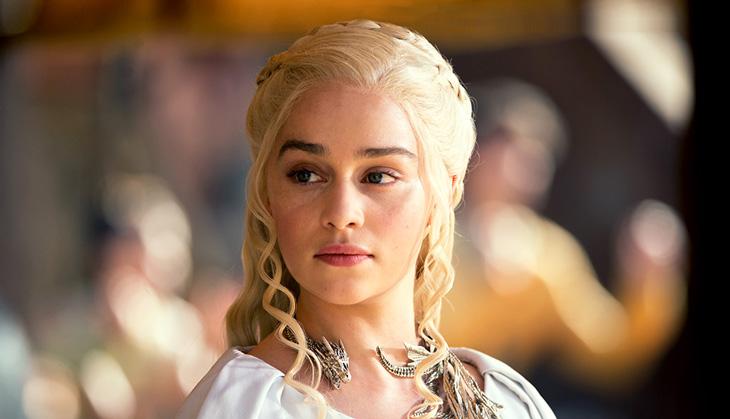
Dany, in her current avatar, is suspicious of most people around her. She has gone from being a gullible child raised far away from kings and their ways, to a shrewd leader in her own right. While GoT's constant naming of episodes after her origin could be major foreshadowing, for now the Targaryen Khaleesi is plotting to win the game of thrones.
Interestingly though, it is Dany's personal life, rather than her path of conquest, that's remarkably progressive. For a medieval society, the acceptance of a woman incapable of conceiving a child as their mother – Mhysa – is beautiful, and well ahead of its time.
Daenerys has gone through moments of self-doubt, especially in The House of the Undying, showing her human side, and also her journey of self-discovery.
Instead of letting widowhood relegate her to a life of lost glory in Vaes Dothrak, she chooses to break her own chains, and eventually that of slaves all across Essos.
As Mother of Dragons and Breaker of Chains, Dany creates a new language to describe empowered women, by becoming an example herself.
Sansa
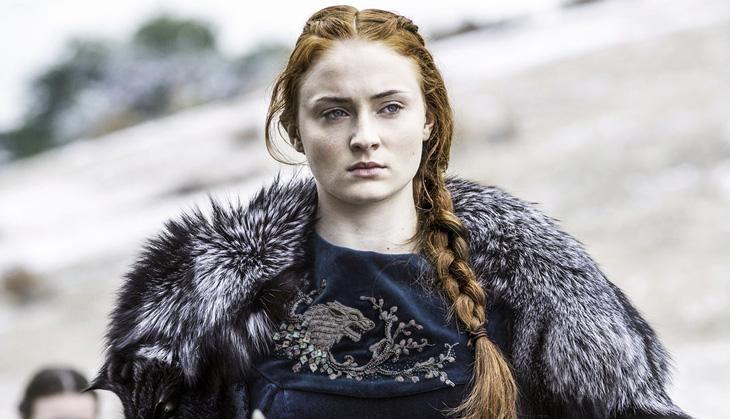
Sansa Stark is possibly the most confusing character in Game of Thrones today. While one may agree with the argument that it's unusual for her to question Jon's decisions so publicly, as she has over the past two episodes, it is also important to understand where she's coming from.
Much has been written about Theon's PTSD over the past two days, but Sansa's rape has also changed her as a person quite a bit.
She could have lost herself to the fear of war, and the rape and violence it brings, but, instead, copes with it by completely rejecting pity and moving on before others can say much of it.
While audience sympathy has been largely with Jon for having survived White Walkers and returning to life, it's wrong to pit Sansa against him.
Her experience of the 'game' has been no less traumatic, and it is outright amazing that she continues on undeterred, her sense of ambition intact.
Cersei
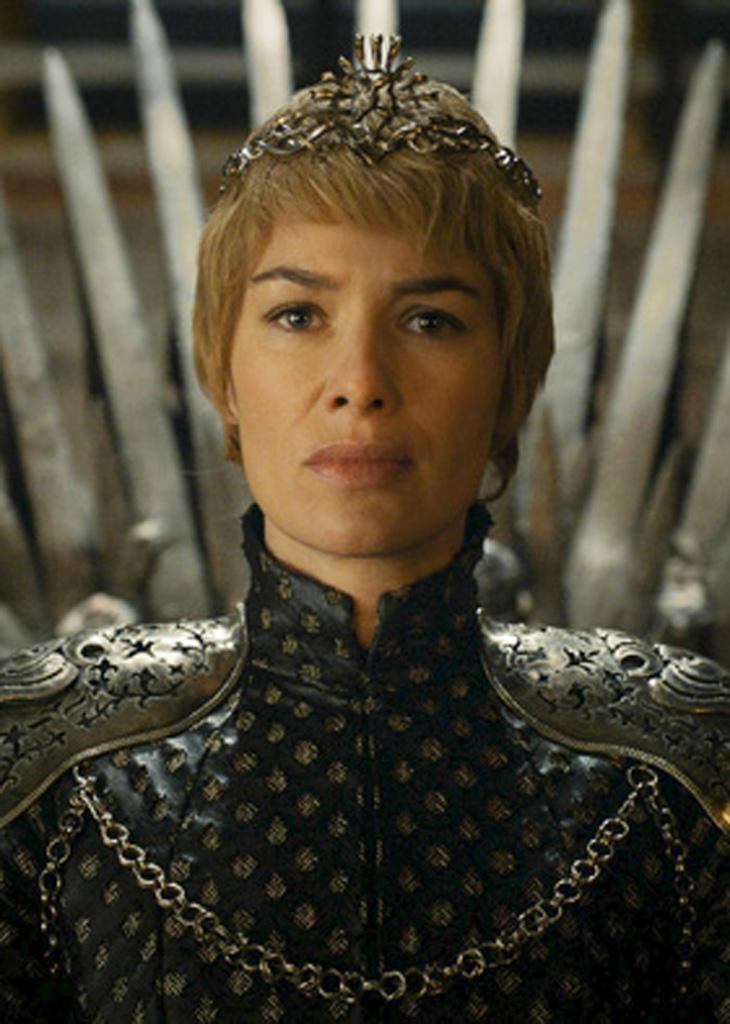
Queen Cersei is no Joffrey. Game of Thrones fans may see her as pure evil, but she still commands respect, much like Sansa does.
Having grown up in an obviously patriarchal family, Cersei has always done what society considered unwomanly. She's not 'nice', or 'kind', or even 'caring' – except towards her children.
Cersei Lannister (never Baratheon, for she didn't take her husband’s name) is the opposite of the Victorian idea of the Angel in the House. Having directly or indirectly caused the death of most of her kin, making her out to be more of a Medea than an angel, Cersei has marked out her own fate. Despite all she has lost, her ruthless streak remains intact. But, as the show underlined through the death of Margaery, niceness doesn't necessarily mean victory
A man in her place would be respected, or at least feared, and after the humiliation she faced walking naked from the Great Sept of Baelor, it isn't surprising she's switched to a more androgynous attire.
Arya
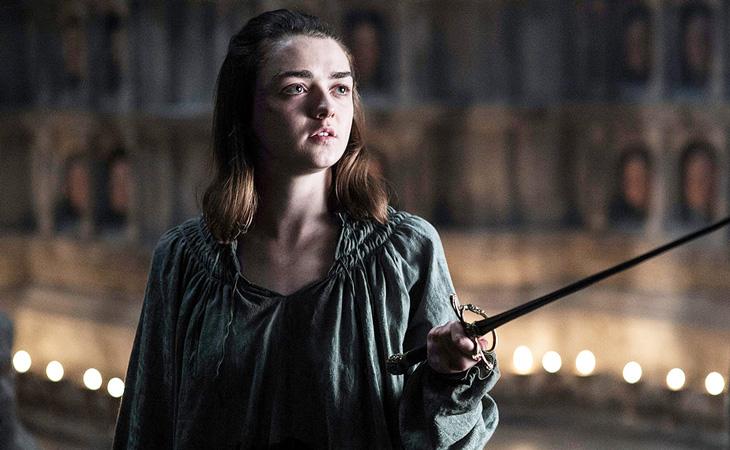
Arya and Nymeria's reunion (or the lack thereof) last episode was downright frustrating. Fans had been waiting for the moment, but the showmakers decided to go with the spirit of the animal, which, like Arya's, is free.
In retrospect, this signals the keen detailing in certain core values of characters. Arya Stark has been a lone wolf for a long time now, and although she yearns to reunite with her family, she has a larger purpose she wants to fulfill.
Game of Thrones has created the perfect mix of a vengeful hero and a free-spirit in Arya. Her direwolf, a reflection of herself, is a survivor and leader, if and when the time comes.
Besides, Arya is, after all, also a badass assassin. Her ability to transform into any person, man or woman, is also a clear marker of the ungendered life she's made out for herself.
Brienne
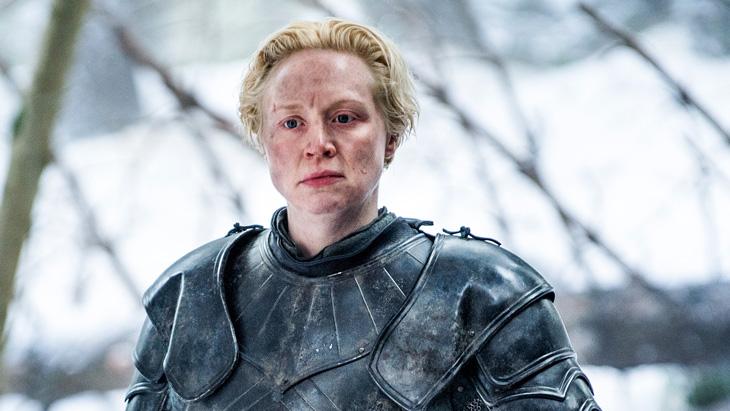
She stands taller than most men around her, and barring the comic relief the show has introduced with Tormund's crush on her, Brienne is a no-nonsense person.
A rightful knight in Renly's rainbow guard, the only woman to achieve this honour, she is shown to be vulnerable despite her build and strength. Sensitive, yet taught not to be for survival, Brienne of Tarth still has the ability to see the good in people.
She's an interesting departure from how a 'butch' woman is generally stereotyped on TV. Brienne, unlike Yara, is straight, falls in love with a man, and can fight better than 10 knights put together.
Olenna
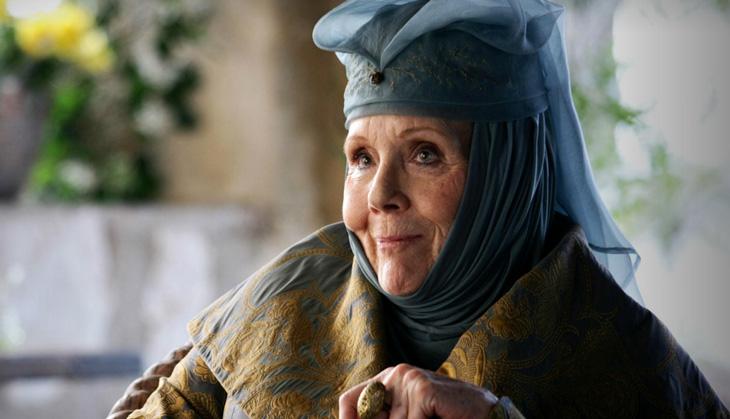
The Queen of Thorns is one of the strongest characters in all of GoT. Her, and Lyanna Mormont, in all probability.
Barring Melisandre, Olenna is the oldest woman on this list, and she defies ageism with every dialogue, every smirk, and every flick of her hand. By Season 7, she has practically no family left, just Highgarden riches and lots of ships.
But Olenna, not unlike Arya, is driven by vengeance. She doesn't plan on resting before she has Cersei killed.
Medieval tales often have older men – like Ser Barristan Selmy – fight until their last breath, but it is fantastic to have a woman do that, especially a woman as witty as Lady Olenna.
She's also a staunch believer in female solidarity. Be it with her now dead granddaughter Margaery, Sansa Stark, or, lately, Daenerys.
Ellaria
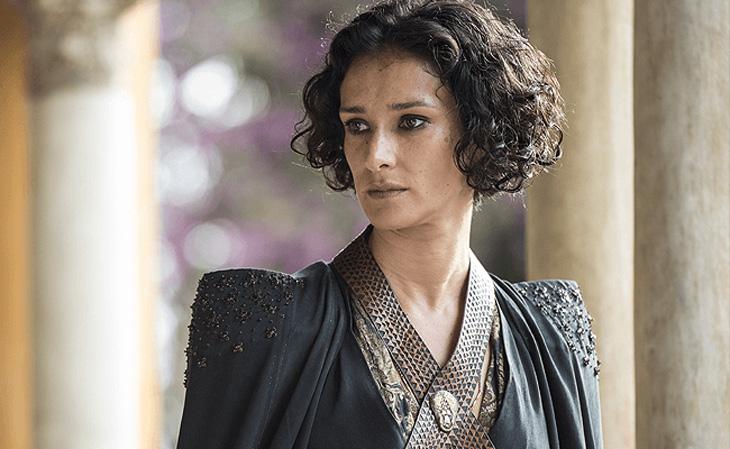
The last episode puts a bit of a question mark on this character's future. But the ruler of Dorne, Ellaria Sand, is a highly liberated woman, and fortunately not ridiculed on the show like her daughters often are.
The bastard daughter of Harmen Uller and the paramour of prince Oberyn, Ellaria wields an immense amount of power in Dorne for a woman who practically comes from nothing.
It is true that Game of Thrones often allows its bastard characters to take the lead – as with Jon Snow and Ramsay Bolton – but Ellaria is the only woman to do so.
She's also sexually liberated and wears her sexuality on her sleeve, amusing herself by making awkward men like Theon squirm.
Lyanna
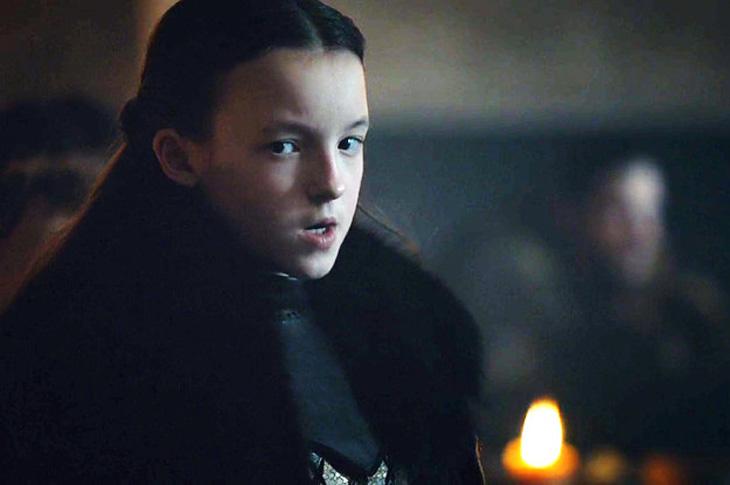
A fan favourite, Lyanna Mormont is the lady of Bear Island, a kingdom that has always been loyal to the Starks of Winterfell.
On the show, she's every bit the fabled bear woman who would fight enemies with their 'cubs' strapped to their chest. Wise beyond her years, Lyanna cannot be ridiculed or coddled because of her tender age. Viewers might, but the show never patronises her.
She establishes her authority by asserting that women and girls can fight just as well as men and boys, and the North would do well to listen to her.
Yara
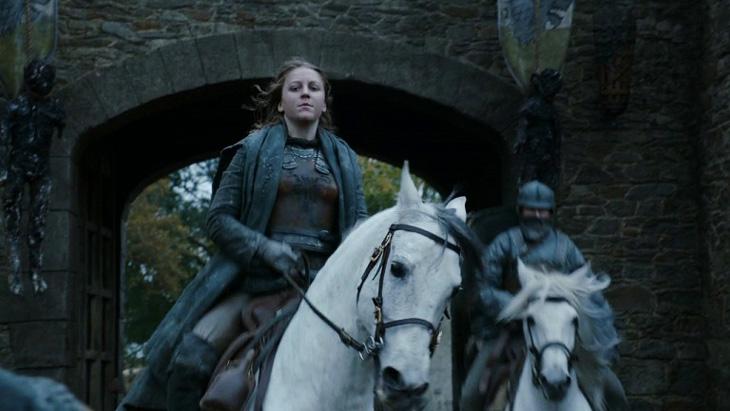
The Greyjoy heir is a warrior who is proudly queer. She makes love to women out in the open, with the same level of comfort all the men on Game of Thrones seem to have.
Her followers have a lot of faith in her, and she has had to work doubly hard to gain their affection. Constantly challenged, Yara has had to prove her worth repeatedly, despite being the daughter of the ruler of the Iron Islands, Balon Greyjoy.
She would have effortlessly taken over her father's responsibility, had it not been for her uncle Euron, who at this point in the story, is causing her more than a few problems.
Gilly
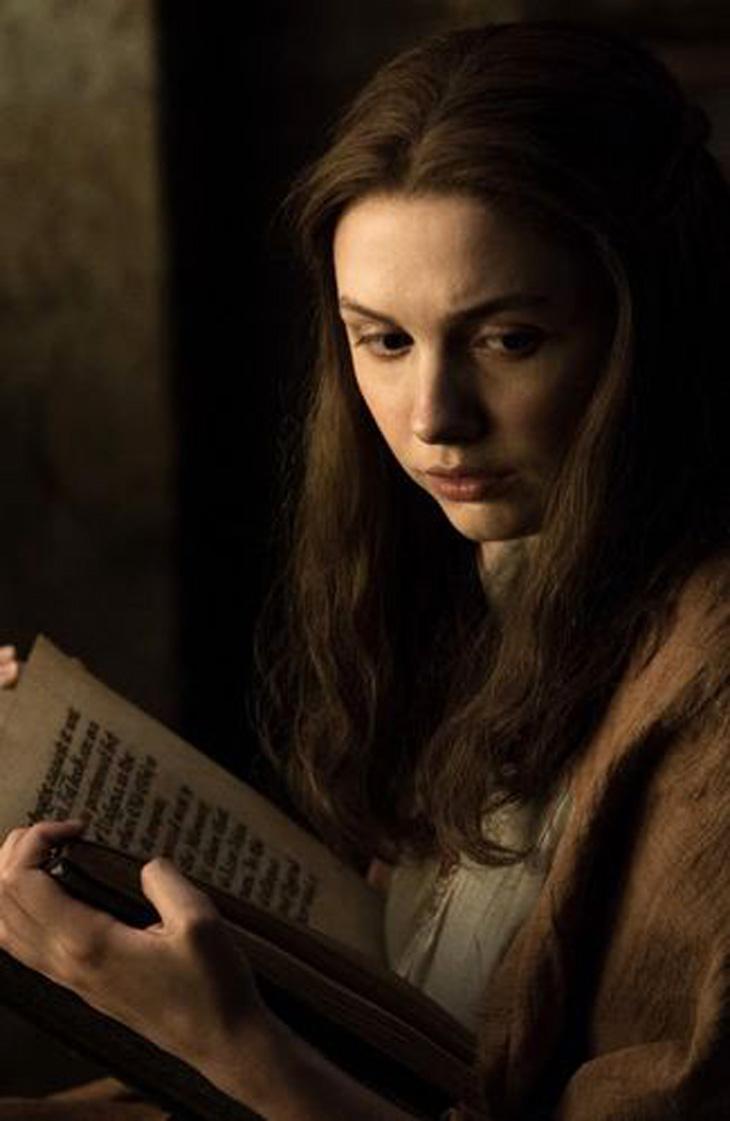
Possibly one of the most underrated characters, Gilly is both bold and brave. Another survivor, Gilly has a quality not many characters in the series seem to have – self-preservation.
Unlike how women are perceived, Gilly is not self-sacrificing and understands the need to move ahead with the times.
A thorough realist, Gilly is teaching herself how to read, yet another survival skill in a dog-eat-dog world. A skill highlighted by her partner Sam's quickly acquired knowledge about all that's necessary to survive the impending war against the Others.
Missandei
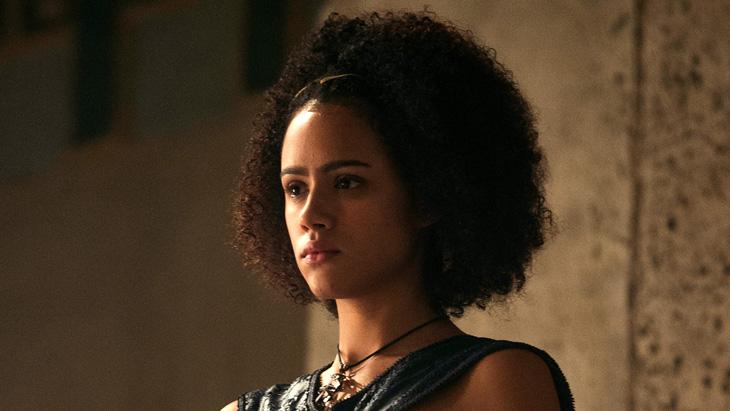
One of Dany's trusted advisors, Missandei was a slave girl, a translator from Nath. While she's much younger in the books, the older characterisation of Missandei on the TV show has allowed room for interesting experimentation.
Despite being furiously loyal, she's, on more than one occasion, played advisor and questioned Daenerys’ choices.
Also, on the show, she's finally sexually involved with Grey Worm – leader of the Unsullied. Her openness and willingness to make love to him, despite him being a eunuch, shows her fluid attitude towards love and sexuality.
Meera
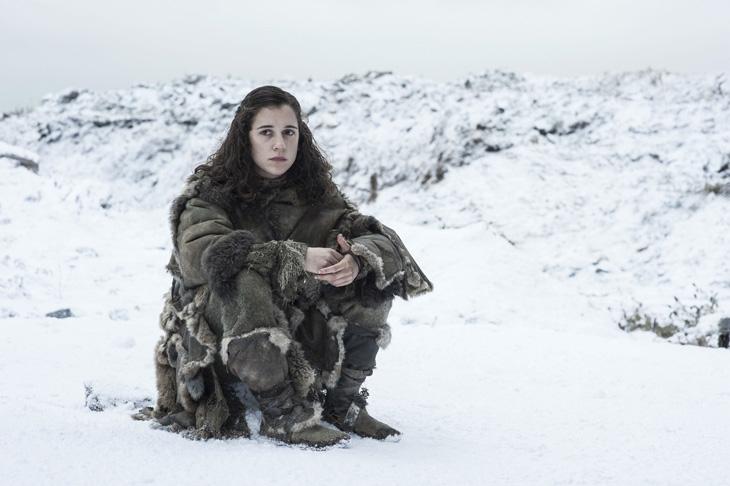
Lord Howland Reed's daughter, Meera, like Lyanna, is sworn to House Stark. She has seen the worst of what winter can bring, fought White Walkers and survived.
Meera is synonymous with grit and bravery. That she hasn't given up on Bran yet – a thoroughly self-centred character – despite having lost her brother Jojen along the way, is a miracle. While she is caring and persevering, what makes Meera truly remarkable is her unfazed attitude.
She's not strong like Brienne or Yara, but she continues to drag Bran all the way through to the other side of the wall.
Melisandre
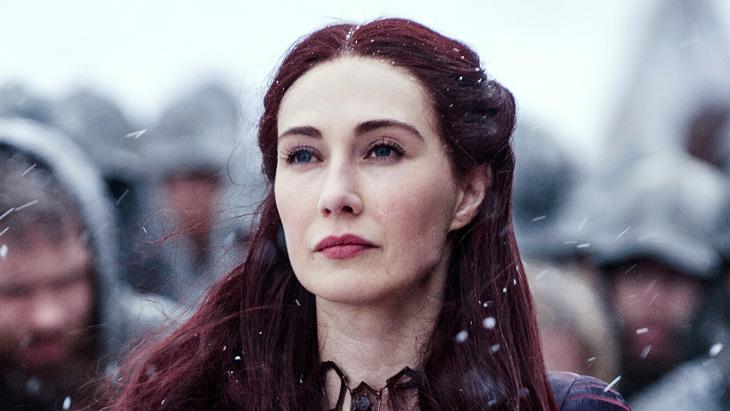
The most enigmatic character in all of the GoT universe is Melisandre, the Red Woman. Last season, we learnt that she's been around possibly for centuries, hiding her age with magic.
Melisandre is sexual and capable of producing shadow babies birthed with the sole purpose of murder. Her sexuality is meant to make the viewer uncomfortable, especially now that we know she's no young woman.
Fascinatingly though, Melisandre may be made of all the ingredients one associates with a 'witch', and thereby inherently evil, but she's actually quite thoughtful, and like Varys, serves the realm. She carries out actions that deeply trouble her unquestioningly, but it shows that despite her belief system, her humanity is intact.
Her grey character, driven by religion, is yet to be fully explored by the series. But so far, she's been absolutely arresting.





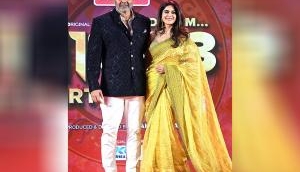

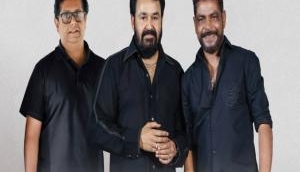

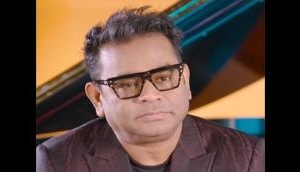
![BJP's Kapil Mishra recreates Shankar Mahadevan’s ‘Breathless’ song to highlight Delhi pollution [WATCH] BJP's Kapil Mishra recreates Shankar Mahadevan’s ‘Breathless’ song to highlight Delhi pollution [WATCH]](https://images.catchnews.com/upload/2022/11/03/kapil-mishra_240884_300x172.png)

![Anupam Kher shares pictures of his toned body on 67th birthday [MUST SEE] Anupam Kher shares pictures of his toned body on 67th birthday [MUST SEE]](https://images.catchnews.com/upload/2022/03/07/Anupam_kher_231145_300x172.jpg)






